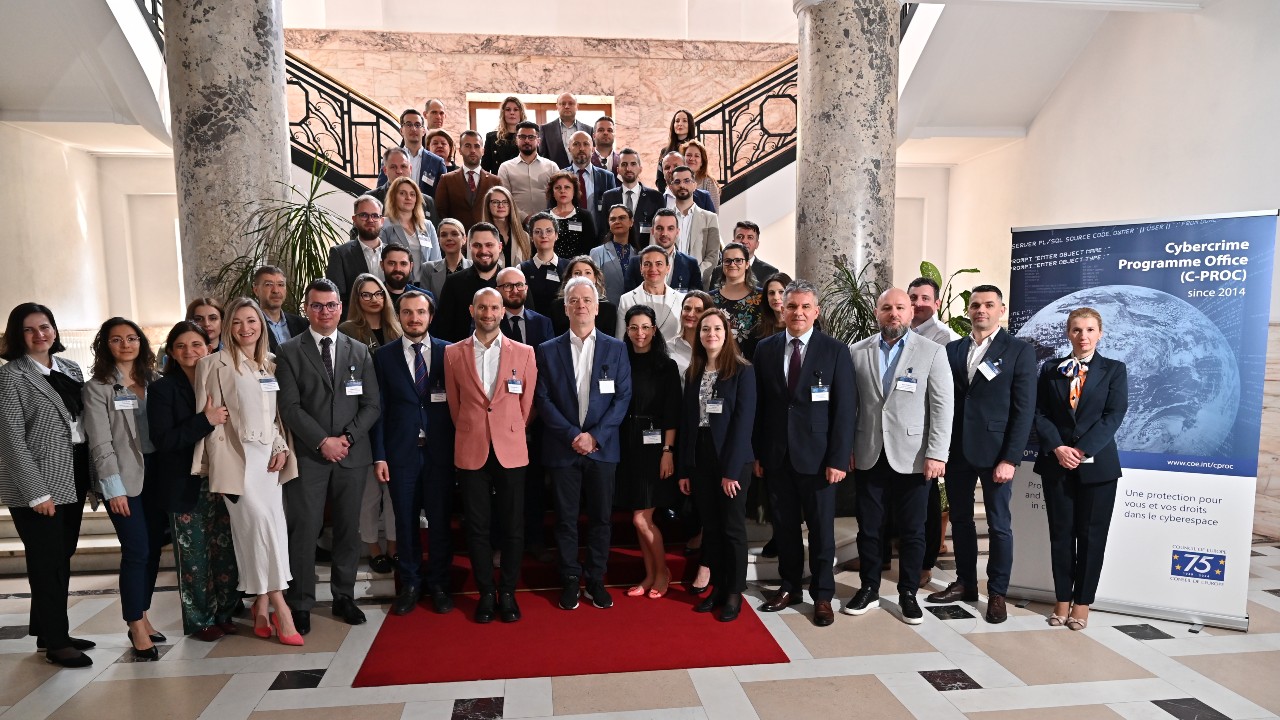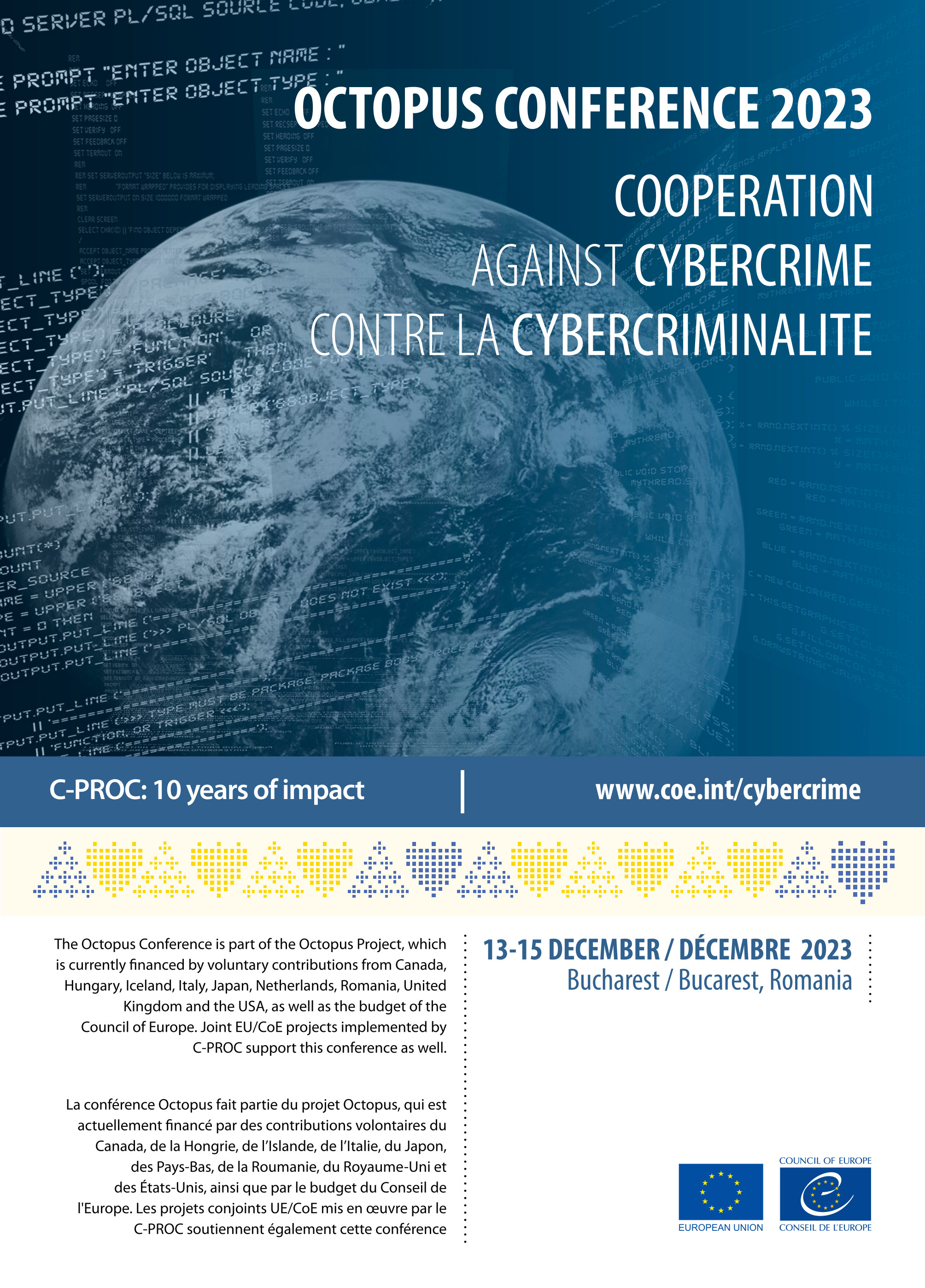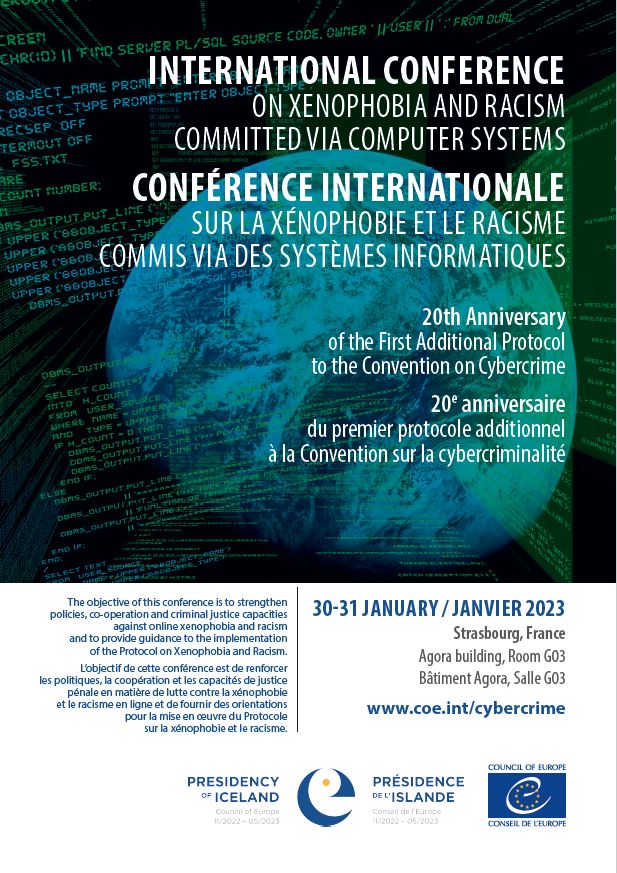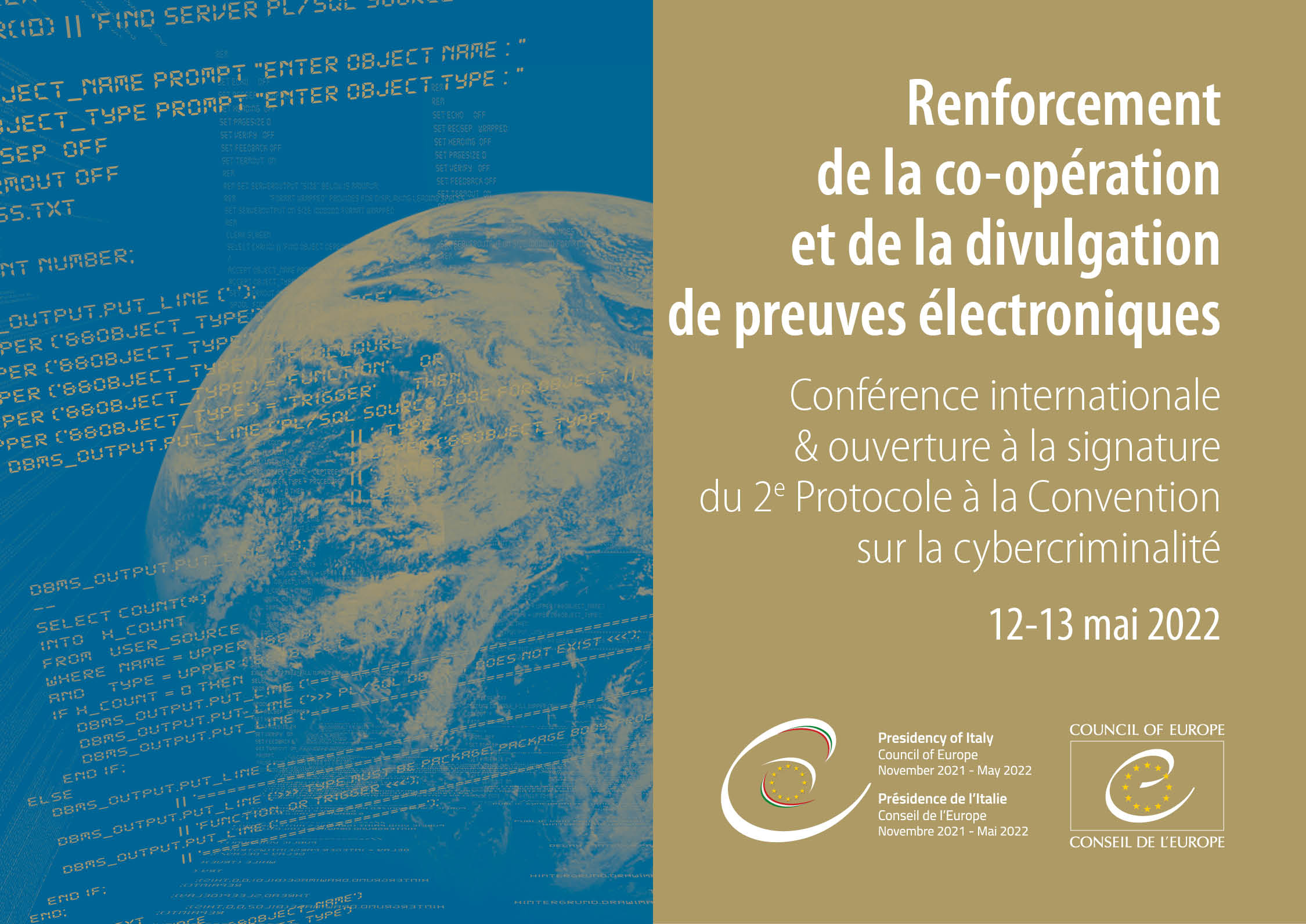The Cybercrime Programme Office of the Council of Europe (C-PROC), based in Bucharest, celebrates this month 10 years since it was founded. On this occasion, on 11 April 2024 an event was organised in Bucharest with representatives of criminal justice authorities in Romania and other relevant institutions to discuss challenges they are facing as well as the way C-PROC can contribute to their capacity building. Romania is constantly supporting activities of this Office, by sharing experience, promoting international standards in the field of cybercrime, as well as in developing an international community of professionals.
The event was hosted by the National Institute of Magistracy (INM) and brough together 60 participants, representatives of the Council of Europe, Ministry of Justice, General Prosecutor Office, Directorate of Investigating Organised Crime and Terrorism (DIICOT), Romanian National Police, National Institute of Magistracy, Police Academy, National Directorate for Cybersecurity, Romanian Intelligence Service, National Office for Combating Money Laundering, as well as Bitdefender and the Romanian Banks Association as representatives of the private sector.
“I want to congratulate the representatives of C-PROC for the activity carried out during these 10 years and for the remarkable results achieved on consolidating the institutional capacity in the field of criminal justice and for extending the area of application of the Convention on Cybercrime (Budapest Convention). Professional capacity building is an essential condition for successfully combating organised crime and associated crimes, and in such a technical and dynamic domain as cybercrime it is without doubt a multiplier of efficiency. The accelerated changes that have occurred in the society as a consequence of the digitalization of our daily lives, including starting with 2020 marked by the COVID-19 pandemic, generated in an obvious manner also a change in the criminal behaviour, an adaptation of the means to commit crimes and, of course, facilitated the emergence of new crimes. The challenges we must deal with as judges and prosecutors as a result of the extended digitalisation are today of an unmet complexity. Therefore, the need for a specialised training in the field of cybercrime goes without saying, I do not think anyone doubts this,” stated Mr Viorel Badea, Deputy Director of the National Institute of Magistracy.
“The impact of the activities carried on by C-PROC can be found at multiple levels, starting with those thousands of criminal justice officials who are more skilled and better equipped to meet the challenges of cybercrime and e-evidence. Therefore, developing capacities through trainings for investigators, prosecutors and judges in a sustainable manner constituted a priority. Successful investigations and prosecutions, including international operations, are being carried out all over the world, often because of the legal basis and the skills and tools, as well as the platforms for cooperation provided by C-PROC. As C-PROC depends on extra-budgetary resources, support by donors has been crucial. More than EUR 60 million have been mobilised during these first ten years. Funding by the European Union (through joint projects) and voluntary contributions by the USA, the United Kingdom, Japan, Canada, the Netherlands, Estonia and others have permitted C-PROC to deliver results. And with the UN House in Bucharest, the Government of Romania provided C-PROC with office space,” mentioned Mr Virgil Spiridon, Head of Operations at C-PROC.
“C-PROC became operational in April 2014 and has since supported well over 2100 activities for more than 130 countries in all regions of the world. In 2022 and 2023, C-PROC facilitated also the signing of the Second Additional Protocol to the Convention on Cybercrime, on enhanced co-operation and disclosure of electronic evidence. By March 2024, 43 States had signed (of which 2 had also ratified) this Protocol. C-PROC has been strengthening a criminal justice response to cybercrime that is not only effective, but also meets human rights and rule of law, including data protection requirements. At the policy level, C-PROC thus contributed to a free, open and global cyberspace and to the multistakeholder model of internet governance. After 10 years, C-PROC is a well-established and effective global centre of expertise for capacity building on cybercrime and e-evidence,” added Mr Alexander Seger, Head of the Cybercrime Division and Head of C-PROC.
Among the topics addressed were the capacities and capabilities needed by law enforcement authorities to investigate cybercrime and collect e-evidence, the need to have a strategic approach in training magistrates on cybercrime and e-evidence, the interaction between cybersecurity and cybercrime, following the money, of online payment services and the use of virtual currencies.
The meeting facilitated the exchange of ideas on the current challenges and possible solutions, such as, for instance, to ransomware and crypto-currency investigations, paving the way for new avenues for cooperation between the Council of Europe (through C-PROC) and Romanian authorities.
The Council of Europe is the continent’s leading human rights organisation. Since its foundation in 1949, the organisation has created a common legal space, centred on the European Convention on Human Rights (ECHR) across its 46 member states, for more than 700 million people. The Council of Europe’s Convention on Cybercrime, opened for signature in Budapest on 23 November 2001, gathers so far 93 States, 70 being Parties, 2 having signed it and 21 having been invited to accede.
More information:
Council of Europe: Action on cybercrime
Council of Europe: Cybercrime Programme Office (C-PROC)
Council of Europe: C-PROC@10: Flyer (English)






